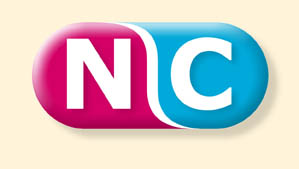"Be careful what you wish for..."
The
Dangers of the Internet
and Unsupervised Prescribing
by Dr. Richard Curtis
 The Internet is a wonderful resource and is a great source of information about
trans issues. It is a lifeline for many enabling interaction with other trans
people. The number of trans sites has increased enormously in the last two years
and it provides the information required for people to attach terms of reference
for the feelings they have. Some sites are better than others and many comment
on the hormone interventions that are used to facilitate a physical transition.
Depending on the site, the accuracy of this information varies from completely
inappropriate to a very sensible overview. Armed with this information people
proceed to buy their medication off the Internet from the numerous convenient
but often expensive online pharmacies without any advice from a doctor.
The Internet is a wonderful resource and is a great source of information about
trans issues. It is a lifeline for many enabling interaction with other trans
people. The number of trans sites has increased enormously in the last two years
and it provides the information required for people to attach terms of reference
for the feelings they have. Some sites are better than others and many comment
on the hormone interventions that are used to facilitate a physical transition.
Depending on the site, the accuracy of this information varies from completely
inappropriate to a very sensible overview. Armed with this information people
proceed to buy their medication off the Internet from the numerous convenient
but often expensive online pharmacies without any advice from a doctor.
I have been asked by a number of people to write about this issue from the medical perspective. I would hazard a guess that a third of my new patients have recently or currently self prescribed in this way for varying amounts of time. It is fair to say some people choose sensible regimes but others take wholly inappropriate drugs. Before the cynical reader assumes that I am writing this to encourage patients to come and see me, I can assure you that the reasoning which follows would be applicable to any form of self-prescribing with any drug. It is advice I give my friends and advice I used to give as an NHS GP.
There
are ten reasons why self-prescribing
cross sex hormones obtained on the Internet is risky.
-
1. Firstly, the quality of the drugs obtained may be of a poor standard. There are some "rogue manufacturers" who do not comply with normal pharmaceutical manufacturing processes and are not regulated. "Drugs" with no active ingredient and pills with cement as a constituent are regularly discovered. There is no guarantee that the pill you think you are taking is what you ordered. Clearly such "drugs" will not have the desired effects and could clearly cause unusual or harmful side effects. These "manufacturers" make the packaging look convincing as this is not difficult to do.
-
2. I commonly ask patients who have self-prescribed how much their drugs cost. Generally, they have paid much more for them than the high street chemists would charge with a private prescription. Testosterone injections and Oestrogen are actually quite cheap but patients are paying several times more than they need to. Hence the Internet is not necessarily a cost effective option.
-
3. Prior to prescribing any drug, doctors undertake a risk assessment based on the individual patient's health to date, family history, age and the results from any test to determine the adequacy of kidney and liver function. Properly functioning liver and kidneys, which metabolise and excrete most drugs are essential. I undertake routine blood tests prior to prescribing. Whilst most patients are fit and healthy, the odd patient does have underlying problems, which they are unaware of. For instance, excess alcohol consumption can lead to abnormal liver function. This means that the body cannot adequately process drugs, particularly oestrogen, causing an inappropriate build up which may in turn lead to increased risk of adverse effects. Some patients do not realise that a family history of thrombosis, for instance, as well as having a personal history themselves, means that additional caution, counselling, baseline tests and monitoring, would be appropriate. The drugs used by doctors in every branch of medicine are tailored to the individual. So a "one cap fits all regime" is substandard practise.
-
4. The exact drug used is important. Different drugs have different risk profiles and careful counselling of the patient and informed consent is a necessary prerequisite, particularly for the higher risk formulations. For example, the risk of thrombosis is much higher for Ethinylestradiol, which is found in contraceptive pills, than for 17 ß-Oestradiol, which is why the former has fallen from favour. There are patients who put themselves onto this drug who should not be on it and put themselves at significant risk of serious side effects. There are transmen who take things like growth hormone or high doses of body building steroids in addition to the usual Testosterone injections without understanding the implications of this.
-
5. Few patients are aware of the mechanisms of absorption, distribution, metabolism and elimination of drugs. An at risk individual may not appreciate the way different delivery methods impact the tolerability and drug load the body has to deal with. For instance, the shorter acting Testosterone formulations have quick cycling peaks and troughs every two weeks. A high peak over the normal range for Testosterone is much more likely to lead to complications than the longer acting slower onset injections such as Nebido. Similarly, the troughs are often troublesome and a more balanced daily administration utilising the transdermal delivery method may well be more appropriate for some individuals. Such discussions are an essential part of the doctor's role in helping patients to achieve their physical transition in the safest and most stress free way.
-
6. The actual dosage chosen by patients varies markedly. Some take very tiny doses and really may as well not bother. Others overdo it without due concern. One of the basic tenets of prescribing is to use the lowest dose to achieve the desired effect. Every individual varies in their ability to absorb drugs, particularly orally, as well as the ability of these drugs to work in a beneficial way. Again the "one dose fits all" impression given by the Internet is misleading. The Internet doesn't generally mention the long list of drugs which can increase or decrease the absorption of oestrogen for instance. Doctors are used to keeping these things in mind and advise accordingly.
-
7. Patients very under appreciate the impact of what is called co-morbidity. Co-morbidity is the impact that other health problems may have on the risks associated with taking cross gender hormones. Compromised liver and kidney function has already been mentioned. In transmen, this may be something called haemochromatosis, a relatively common inherited condition which predisposes the person to make too many read blood cells. If this is significant, it can increase the clotting tendency of the blood, causing a thrombosis in the form of a pulmonary embolus or deep venous thrombosis in the leg. Testosterone also has this effect and means dosage frequency or formulation (the method of delivery of the drug e.g. injection, gel or patch) adjustment may be necessary from the outset. Those with diabetes, high blood pressure, a history of strokes, heart disease or clotting tendency can all be made worse by the administration of Oestrogen. Failure to appreciate this and look out for the early relevant symptoms can jeopardise subsequent treatment.
-
8. All long-term drugs should be monitored closely. Any patient on repeat prescriptions will tell you that they have to see their GP once a year to review their medication. Things change; the body is a constantly evolving organism. From one year to the next, it is not the same. Over many years in Practise, my experience is that patients do not understand this. It is often said, "but it has been fine up until now". The effect of aging is the most obvious example. Over forty, the body is starting to show significant changes. It is slowing down and does not tolerate drugs as well as a twenty year old. Fifty plus, sixty plus, seventy plus all show step changes in the factors to take into consideration in re-prescribing. Remember, it is not always possible to know what is lurking within us. Cancers can take ten years to become evident. Arterial disease causing heart attacks and strokes is not obvious until you actually have a significant heart attack or stroke. The risks of these types of things are known better by medical practitioners and a change in medication is often prudent to mitigate against these risks. I suspect patients think of monitoring in terms of blood tests and admittedly, these are a part of it. Recent research suggests that it may not be necessary to measure anything other than full blood count and Testosterone levels, with LH / FSH if post hysterectomy may be all that is needed in transmen. In post-operative transwomen not on Ethinylestradiol, liver function tests are somewhat redundant but Lipids and Glucose are probably not. An annual Oestradiol plus LH / FSH to monitor adequate replacement as requirements change over time is probably useful to inform decision making. But for both groups, an annual blood pressure reading is hugely important. Oestrogen is well known to increase blood pressure. We have not studied sufficient numbers of transmen for long enough to know what the actual long term risks are but high blood pressure may be the first marker of increased cardiovascular risk. Genetic men have a higher incidence of coronary heart disease and it is not known whether this transfers to transmen taking testosterone. A prudent change to the dosage and method of administration plus adequate management of other conditions and drugs is all that is proposed. It is not say that withdrawal treatment is necessary but one wants to be an alive trans patient - not an avoidably dead or ill one.
-
9. It follows from the above that adequate supervision of hormone administration will facilitate early or appropriate management of unrelated illness or untoward effects of any drug. Untoward effects do occur, including thrombosis as a DVT or PE, polycythaemia and breast cancer. Cancers generally happen and increase thrombotic risk; high blood pressure happens.
10. Finally, common sense dictates that self-prescribing potent drugs with a multitude of surrounding issues which are poorly understood is a dangerous idea. Consult those who are expertly aware of all the above. I am a great fan of DIY but still realise a professional tradesman has far more skills and experience than I and on average, is going to do a better job. It is not a perfect world and even doctors don't always get it right. Patients are even less likely to.
 There
are reasons why people decide to self medicate. But I believe however, it is
false economy financially, physically and emotionally in bearing the burden of
prescribing. I have not gone into every possible scenario but can certainly say
that it would be extremely likely if all data was analysed, everyone who self
prescribes would have some issue pertaining to one of the above points. Don't do
it!
There
are reasons why people decide to self medicate. But I believe however, it is
false economy financially, physically and emotionally in bearing the burden of
prescribing. I have not gone into every possible scenario but can certainly say
that it would be extremely likely if all data was analysed, everyone who self
prescribes would have some issue pertaining to one of the above points. Don't do
it!
Transhealth
The London Gender Clinic
3rd Floor (North) 25 Wimpole Street
London
W1G 8GL
England
Telephone: 020 7631 3164
To Contact Northern Concord write to:
The Northern
Concord,
P.O. Box 258,
Manchester, M60 1LN
United Kingdom
or E-mail JennyB@northernconcord.org.uk

1987 - 2017
Working for the transgender community for the past 29 years
